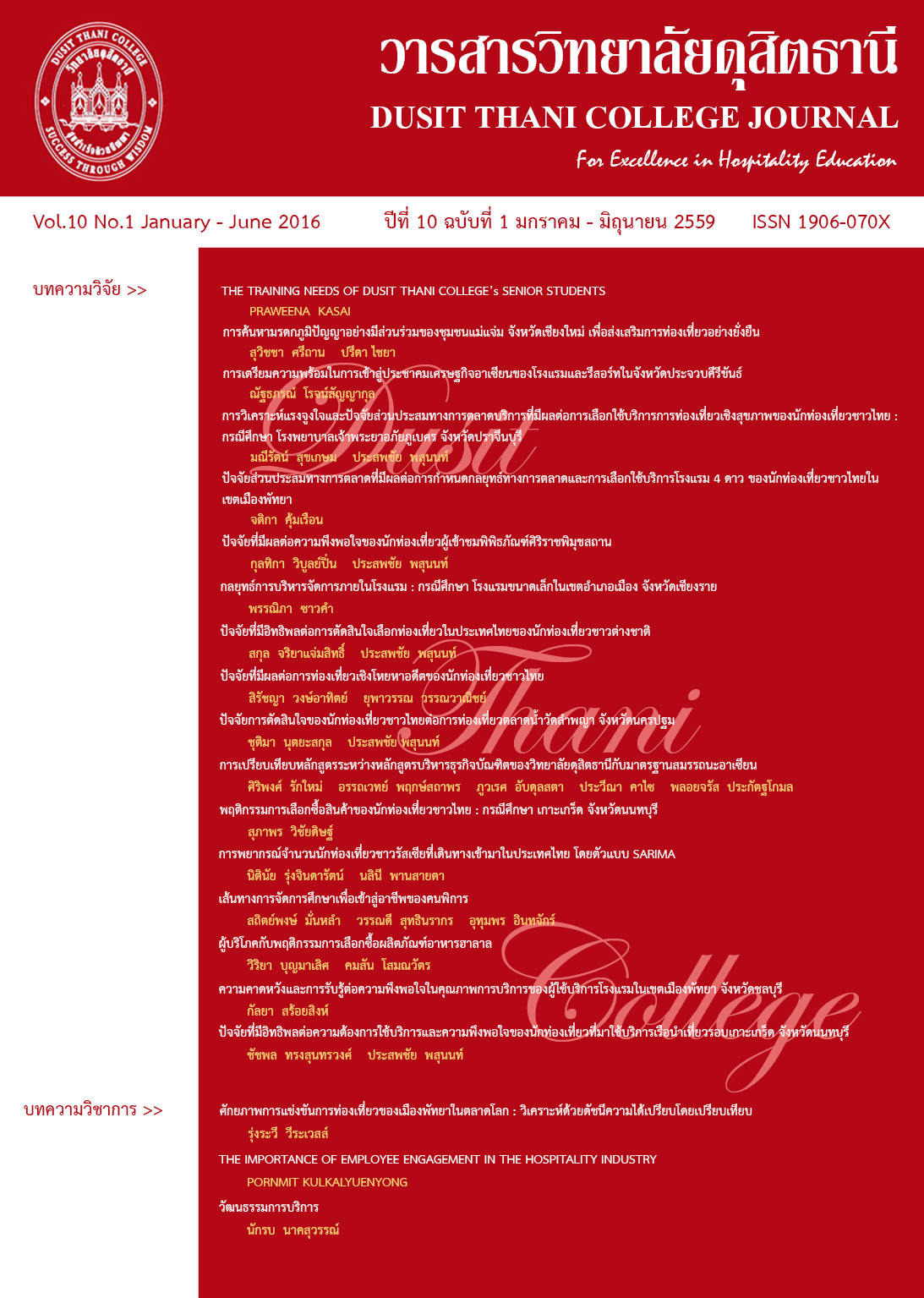CAREER EDUCATION PATHWAYS OF THE DISABLED
Main Article Content
Abstract
The present study aimed at examining the formal and informal vocational institutions on their provision of career education pathways for people with disabilities. A documentary analysis was applied to obtain the data related to learning and teaching process, including the qualitative data from in-depth interview with 16 school directors and instructors, 20 disabled students at Don Bosco Technological College, Redemptorist Vocational School for People with Disabilities and 9 Vocational Rehabilitation Centers. A content analysis was then employed with the qualitative data. The findings revealed that having a career, for the disabled, is the most important base of self-worth living in a society. They do not want a “sympathy” but rather an “understanding” from others regarding their disabilities. Therefore, they wish to be given a “chance” for a career and living their lives like other people For them, a career opportunity can be a first-step exposure to “self-reliance”, which is meaningful for living their lives in a society with dignity. The curricula can be a blueprint for a learning and teaching management provide for the disabled, wherein they will learn both vocational skills and social interaction skills. However, it is suggested that the classroom teaching media be used the same with those for ordinary people in order to welcome them to a real world paralleled with a provision of medical, educational, vocational and social convalescence.
Article Details
Article Screening Policy
- All research and academic articles to be published must be considered and screened by three peer reviews in the relevant field / article.
- All articles, texts, illustrations and tables published in the journal are the personal opinions of the authors. Editors don't always have to agree. And no responsibility whatsoever is the sole responsibility of the author.
- The articles to be published must never be published. Where did you first publish? And not in the consideration of other journals If the audit found that there has been a duplicate publication It is the sole responsibility of the author.
- Any article that the reader sees as being plagiarized or impersonated without reference. Or mislead the work of the author Please let the journal editor know it will be your greatest blessing.
References
รังสิมา วิวัฒน์วงศ์วนา. (2545). คุณภาพชีวิตของคนพิการทางการได้ยินที่ประกอบอาชีพอิสระ. วิทยานิพนธ์พัฒนาแรงงานและสวัสดิการมหาบัณฑิต สาขาสังคมสงเคราะห์ มหาวิทยาลัยธรรมศาสตร์.
ราชกิจจานุเบกษา. (2550). เล่มที่ 124. ตอนที่ 61 ก, หน้า 8.
แววดาว ทองเจิม. (2540). การมองตนเองและโลกทัศน์ของเด็กพิการตาบอด: ศึกษากรณีเด็กในโรงเรียนสอนคนตาบอด กรุงเทพมหานคร. วิทยานิพนธ์มานุษยวิทยามหาบัณฑิตสาขามานุษยวิทยา จุฬาลงกรณ์มหาวิทยาลัย.
สุรพล ปธานวณิช และคณะ. (2541). ชีวิตการทำงานของลูกจ้างพิการในประเทศไทย. สาขาพัฒนาแรงงานและสวัสดิการ มหาวิทยาลัยธรรมศาสตร์.
สำนักงานคณะกรรมการพัฒนาเศรษฐกิจและสังคมแห่งชาติ. (2555). แผนพัฒนาเศรษฐกิจ และสังคมแห่งชาติ ฉบับที่ 11 (2555-2559). กรุงเทพฯ : สำนักงานคณะกรรมการเศรษฐกิจและสังคมแห่งชาติ.
Abraham K. and Greenthaus, Jeffrey H. and Trwin, Badin J. (1957).“Personnel attitudes and motivation.” Annual Review of Psychology 28: 175-196.
Bowles, Weddy Lyn. (1996). Quality of Life of Adults with Spina bifida: an Issue of Equality Australia. Doctor of Philosophy Thesis in Faculty of Arts and Social Science. University of New South Wales.


